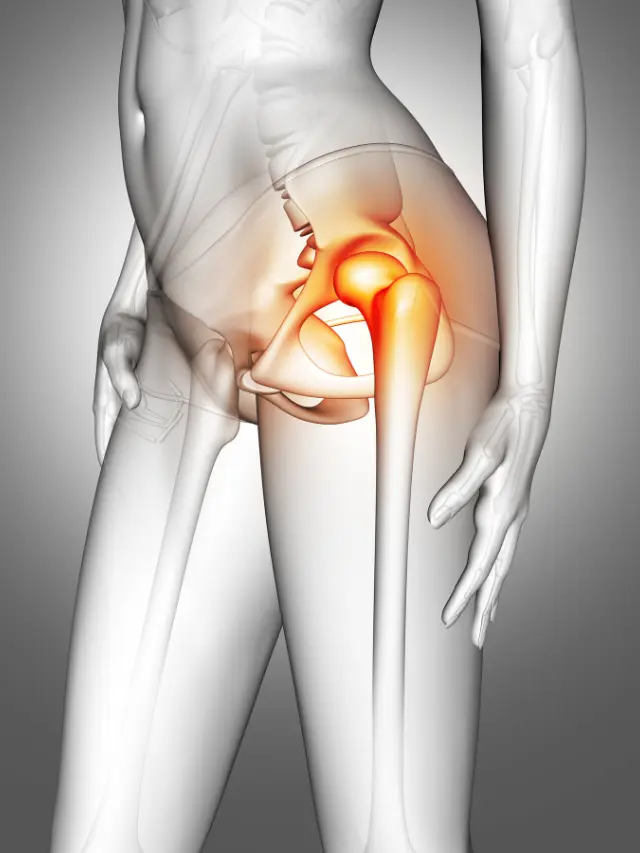Hip replacement surgery in Chennai, hip problems can be debilitating, affecting mobility and overall quality of life. In this comprehensive guide, we will explore hip replacement surgery, in a city renowned for its advanced medical facilities, experienced surgeons, and high success rates. Learn about the procedure, recovery, and the transformative impact it can have on your life.
Hip Replacement Surgery Overview
Hip replacement surgery in Chennai, known as total hip arthroplasty, is a medical procedure commonly undertaken by highly trained orthopaedic surgeons. It involves the replacement of a damaged hip joint with a prosthetic implant. This surgical intervention is recommended for individuals facing debilitating hip pain, osteoarthritis, rheumatoid arthritis treatment, or hip fractures. Chennai boasts a skilled medical community proficient in this procedure, dedicated to enhancing patients’ mobility and alleviating pain.

What is Hip Replacement?
Hip replacement, or hip arthroplasty, is a surgical procedure to replace a damaged or diseased hip joint with an artificial joint, typically made of metal, ceramic, or plastic components. This procedure is commonly performed to alleviate pain, improve joint function, and enhance mobility in individuals with conditions such as osteoarthritis or rheumatoid arthritis. The surgery aims to restore the hip joint’s smooth movement and alleviate discomfort caused by joint degeneration or injury.
Hip Replacement Surgery Procedure
The hip replacement surgery process involves several key steps:
- Anaesthesia: The patient is placed under general or regional anaesthesia to ensure comfort and pain control during the procedure.
- Bone Reshaping: Damaged bone and cartilage are removed from the hip socket and femur.
- Implant Placement: Artificial components, including a socket, stem, and ball, are securely implanted.
- Closure: The incision is closed, and the surgical site is bandaged.
Hip replacement surgery in Chennai benefits from the latest advancements in minimally invasive techniques, reducing recovery time and complications.
Recovery and Rehabilitation
After hip replacement surgery, the road to recovery begins. Rehabilitation is a crucial part of the process, and patients may follow these steps:
- Weight-Bearing: Gradual increase in weight-bearing on the hip.
- Medications: Pain management and blood clot prevention medications.
- Home Modifications: Adapting the home environment for safety and comfort.
In Chennai, dedicated medical teams work with patients to ensure a smooth recovery and successful rehabilitation process.
Benefits of Hip Replacement Surgery in Chennai
Chennai has gained recognition as a hub for orthopaedic surgeries, including hip and total knee replacement. Some of the advantages of choosing Chennai for hip replacement surgery include:
- Experienced Surgeons: Chennai is home to a plethora of skilled and experienced orthopaedic surgeons specializing in hip replacement. Many of these professionals have a proven track record of successful surgeries and a deep understanding of various hip conditions. Their expertise ensures that patients receive high-quality care and optimal surgical outcomes.
- Advanced Facilities: Chennai’s healthcare infrastructure is known for its state-of-the-art hospitals and clinics. These facilities are equipped with cutting-edge technology, including advanced imaging, robotic-assisted surgery, and innovative prosthetic materials. These modern amenities enable surgeons to perform precise and minimally invasive procedures, enhancing patient safety and reducing recovery times.
- Cost-Effective Care: One of the most significant advantages of seeking hip replacement surgery in Chennai is cost-effectiveness. The medical expenses in Chennai are often substantially lower than those in many Western countries. This allows patients to access world-class healthcare without the burden of exorbitant medical bills. The cost savings extend to various aspects of the treatment, including surgery, hospital stays, and post-operative care.
- Customized Care: Chennai’s healthcare providers are known for their patient-centric approach. This customized care extends from pre-surgery consultations to post-operative rehabilitation. Patients receive focused attention and comprehensive support, which contributes to a smoother and more successful recovery process.
- Attentive Post-Operative Care: Chennai’s medical institutions prioritize post-operative care, ensuring that patients receive continuous support during the rehabilitation phase. This includes physical therapy, pain management, and monitoring for any potential complications. The combination of experienced medical staff and a commitment to attentive care greatly enhances the patient’s recovery experience.
Risks or complications associated with hip replacement surgery
Hip replacement surgery is generally safe and effective, but like all surgery, it carries some risks and potential complications. These may include
- Infection: Risk of infection at the surgical site or deep within the joint.
- Blood clots: Formation of blood clots in the legs or lungs.
- Dislocation: The artificial hip joint may dislocate, especially in the first few months after surgery.
- Implant wear or loosening: Over time, the artificial joint may wear or loosen, requiring revision surgery.
- Nerve and blood vessel damage: Injury to nearby nerves or blood vessels during surgery.
- Anaesthetic risks: Complications related to anaesthesia, such as allergic reactions or breathing problems.
- Leg length inequality: The possibility of one leg being slightly longer or shorter after surgery.
- Persistent pain: Some patients may experience persistent pain after surgery.
It’s important for patients to discuss these risks with their orthopaedic surgeon before surgery and to follow postoperative care instructions for a smoother recovery.
Causes of hip replacement surgery
Hip replacement surgery, also known as total hip arthroplasty, is usually recommended to treat severe hip joint damage or pain. Common causes include
- Osteoarthritis: Degenerative joint disease in which the protective cartilage in the hip joint wears away over time.
- Rheumatoid arthritis: An autoimmune disease that causes inflammation and damage to joint tissue.
- Post-traumatic arthritis: Joint damage caused by a hip injury or fracture.
- Avascular necrosis: Loss of blood supply to the hip bone, leading to bone death and joint deterioration.
- Congenital hip disorders: Developmental conditions that affect the structure of the hip joint.
- Hip fractures: Serious fractures that can destroy the hip joint.
- Bone tumours: Cancerous or non-cancerous tumours that affect the hip joint.
- Ankylosing spondylitis: Inflammatory arthritis that affects the spine and hip joints.
The decision to have a hip replacement is based on the extent of joint damage, pain and impact on daily activities. Orthopaedic specialists assess individual cases to determine whether surgery is the most appropriate option.
Symptoms of Hip Replacement
Following hip replacement, common symptoms include temporary pain, swelling, and bruising around the surgical site. Patients may initially experience difficulty walking or moving the hip. These are typical during the early stages of recovery. However, persistent or severe pain, increased swelling, signs of infection, or any unusual symptoms should be promptly reported to healthcare providers. Regular follow-up appointments and adherence to rehabilitation guidelines are essential for a successful recovery.
Knee Replacement Surgery in Chennai
In addition to hip replacement, Chennai is also renowned for knee replacement surgery. Knee replacement is recommended for individuals with debilitating knee pain, arthritis, or knee injuries. Similar to hip replacement, knee replacement in Chennai is performed by skilled knee surgeons in advanced medical facilities, offering hope for those seeking pain relief and improved mobility. If you are considering hip replacement surgery in Chennai, rest assured that you can find top-quality medical care in this city, renowned for its orthopaedic expertise.
Conclusion
Hip replacement surgery in Chennai is a transformative option for those suffering from hip pain and limited mobility. This thriving medical destination offers the expertise of experienced surgeons, advanced facilities, and cost-effective care. If you have questions, or experiences, or would like to learn more about hip replacement surgery or knee replacement surgery in Chennai, please leave a comment below. Your insights can be a valuable resource for others considering these life-changing procedures.





